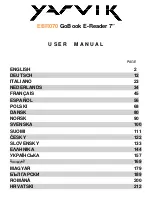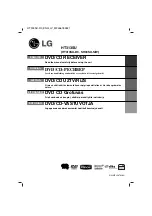
Functional description
11
Note!
The optional dispenser unit is bolted on to the side of main instrument
and connections made through an opening in the instrument case
Temperature control
The temperature control option consists of heating elements. These are
located above and below the measurement position.
Plate types
All types of microtitration plate may be measured. Petri dishes, slides, filters
and Terasaki plates are all suitable.
Plate height sensor
A height sensor ensures that every time a plate is loaded the height is
detected.
Alternative plate loading modes
The possible plate loading modes are:
•
Manual loading (one plate at time)
•
Stacker loading (up to either 20 or 50 plates per load) - requires the
stacker module
•
Robotic loading - uses an external robotic system to load plates in
the plate carrier of the basic instrument. The magazine table of the
stacker is used without magazines. Rods come up from the table and
the plate is loaded onto them.
Flexible stacker
The stacker provides a semi-automated plate loading option. Each stacker
carries up to 20 or 50 plates at a time. The plate stacker includes robust
magazines, which are easy to lift into place and remove. With an easy one-
hand operation you place and remove the loaded magazine. Measurement is
started with a single mouse-click or by pressing the START button,
depending on the barcode mode.
You can select whether plates are taken into the instrument from the right or
the left magazine. Plates can also be moved from one magazine to the other.
Robotic loading
In a typical automated HTS laboratory there are many different instruments
such as stackers, different kinds of readers and counters, washers and
dispensers, all of which can be accessed by a robot enabling continuous
loading and unloading. The robot moves microplates from instrument to
instrument in a sequential order according to the assay protocol used. The
robot acts as the master system and all the other instruments are subsystems
Summary of Contents for EnVision
Page 1: ...EnVision Multilabel Reader 2104 9030 02 March 2008 INSTRUMENT MANUAL ...
Page 2: ......
Page 4: ......
Page 6: ......
Page 11: ...1 Chapter 1 Introduction ...
Page 12: ...2 ...
Page 15: ...5 Chapter 2 Functional description ...
Page 16: ...6 ...
Page 45: ...35 Chapter 3 Information about user instructions and warnings ...
Page 46: ...36 ...
Page 59: ...49 Chapter 4 Routine maintenance ...
Page 60: ...50 ...
Page 75: ...65 Chapter 5 Specifications ...
Page 76: ...66 ...
Page 86: ...Specifications 76 ...
Page 87: ...77 Chapter 6 Quality information ...
Page 88: ...78 ...
Page 90: ...80 ...
Page 92: ...82 ...
Page 93: ...83 Chapter 7 Glossary ...
Page 94: ...84 ...
Page 104: ......
Page 105: ...95 Chapter 8 Installation ...
Page 106: ...96 ...
















































